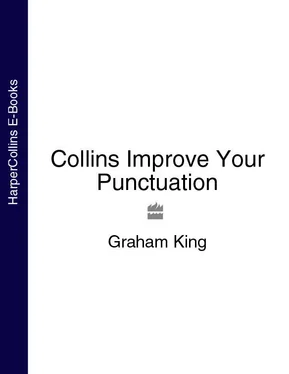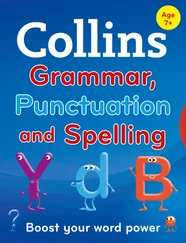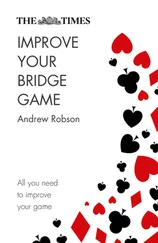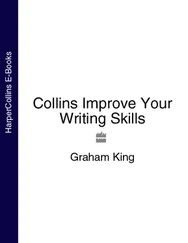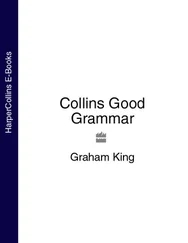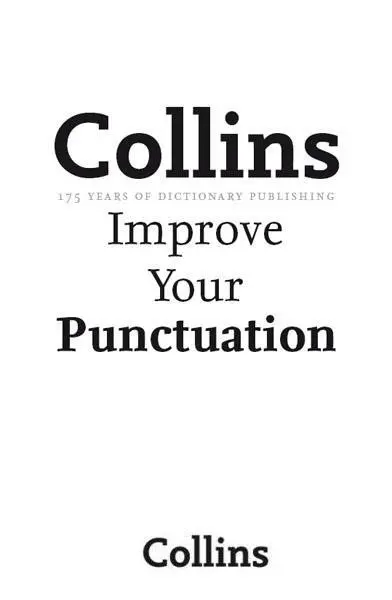
Cover
Title Page
Introduction Introduction Punctuation makes possible the clear presentation of the written language. Or, as one British newspaper advises its writers, punctuation is ‘a courtesy designed to help readers to understand a story without stumbling’. It is the nuts and bolts of the language. There is a strong view that punctuation is more important than spelling. Dr Temple, a former Archbishop of York, thought so. ‘Now spelling is one of the decencies of life, like the proper use of knives and forks,’ he wrote in 1938. But, ‘if you are getting your commas, semicolons and full stops wrong, it means that you are not getting your thoughts right, and your mind is muddled.’ Despite the importance of punctuation in effective communication, there seems today to be a woeful indifference to and ignorance about using even its simplest forms. Or can it be fear? If so, then punctuation’s scary image is undeserved, as you’ll soon discover in this book. Although designed as an all-inclusive, authoritative reference work it will guarantee to take the perils out of punctuation quickly, efficiently and – yes – entertainingly.
Punctuation
Units of Space
Sentences and Paragraphs
Devices for Separating and Joining
Scree-e-e-eechh! The Full Stop.
The Common, but Contrary, Comma.
The Serviceable Semicolon
Trouble with your Colon?
The Seductive Embrace of Parentheses [Brackets]
A Dash to the Rescue
Hassles with Hyphens
A Hotchpotch of Hyphens
Symbols of Meaning
Any Questions? The Question Mark
The Exclamation Mark!
Avoiding Catastrophes with Apostrophes
Quotation Marks
Punctuation Pot-pourri: ellipsis, asterisks, bullets, strokes and typographical effects
The Numbers Game: Punctuating Numbers and Figures
Put Your Punctuation to the Test!
Index
Keep Reading
About the Author
Writing Guides by Graham King
Copyright
About the Publisher
PUNCTUATION. n. [punctum, Latin]. 1. The use of symbols not belonging to the alphabet to indicate intonation and meaning not otherwise conveyed in the written language. 2. The symbols used for this purpose.
Punctuation makes possible the clear presentation of the written language.
Or, as one British newspaper advises its writers, punctuation is ‘a courtesy designed to help readers to understand a story without stumbling’. It is the nuts and bolts of the language.
There is a strong view that punctuation is more important than spelling. Dr Temple, a former Archbishop of York, thought so. ‘Now spelling is one of the decencies of life, like the proper use of knives and forks,’ he wrote in 1938. But, ‘if you are getting your commas, semicolons and full stops wrong, it means that you are not getting your thoughts right, and your mind is muddled.’
Despite the importance of punctuation in effective communication, there seems today to be a woeful indifference to and ignorance about using even its simplest forms.
Or can it be fear? If so, then punctuation’s scary image is undeserved, as you’ll soon discover in this book. Although designed as an all-inclusive, authoritative reference work it will guarantee to take the perils out of punctuation quickly, efficiently and – yes – entertainingly.
Punctuation – What’s the Point?
Those dots, strokes and squiggles may appear physically insignificant on a page of print and evanescent in our speech, but without them all would be chaos. Not knowing how to use them properly can result in even greater chaos. If you were to say to someone:
I hate habitual liars; like you, I find them detestable.
that person would very likely agree. But imagine the reaction should you tinker slightly with the punctuation:
I hate habitual liars like you; I find them detestable.
You’re looking at a system that’s some 2,500 years old. The Greeks came up with the germ of the idea but it took until the Middle Ages for our present system to emerge and a further 500 years for it to acquire its final polish.
Perhaps encouraged by a full complement of marks, writing became very elaborate. Its more skilled practitioners – say, Jane Austen and Charles Dickens – loved to punctuate, and their stately prose is speckled with all manner of stops and symbols. Sentences held together by a score or more commas, semi-colons, brackets, dashes and other marks are commonplace.
Nowadays sentences, no doubt influenced by the brevity of newspaper style, are shorter, and the need for the complicated division of long sentences has all but disappeared. Commas are freely dropped where the meaning remains unaffected. Stops after abbreviations are disappearing in a general quest for typographic tidiness. Today the majority of the English-speaking population probably goes through life without ever using, on paper, any punctuation marks other than the comma, dash and full stop.
Don’t, however, be led astray by this easy-going tolerance. While parsimony in punctuation may be adequate for the majority, it will be of little use to you if you wish to improve your communication skills. The role of punctuation in writing good English cannot be underestimated.
Understanding Punctuation
Is there a trick secret to understanding punctuation?
No, but it does help if you know something about its past. Two or three centuries ago most punctuation took its cues from speech. This was an age when the predominant practice of reading aloud, with its breath pauses and dramatic stresses, was translated into written punctuation – rhetorical punctuation.
A hundred years on, with increased literacy, the spoken word gave way to the written. The stress now was on meaning rather than dramatic effect, and rhetorical (or oratorical) punctuation bowed to a more logical system.
Today we think we have a practical blend of both: a system capable of conveying feelings, force, urgency, tension, rhythm and passion while never abandoning its duty to consistency and clarity of meaning.
Here’s an example of how a sentence might have been written, say, 150 years ago, compared with the same sentence today. The first reflects the natural pauses of speech: it is meant to be heard rather than read. The second is directed primarily to the eye and the mind, rather than to the ear.
Everyone in the cast knew, that Pamela would wish to be the star performer, and once having achieved that status would look down on the rest.
Everyone in the cast knew that Pamela would wish to be the star performer and, once having achieved that status, would look down on the rest.
With the invention and growth of printing, the need for punctuation was inevitable, and publishers have played a vital part in its development. With punctuation, a page of type became more inviting and easier to read, and self-interested publishers ensured that the system was refined and permanent. More than any other group, publishers of newspapers, magazines and books are our punctuation police, the custodians of the language. But publishers are also human and thus prone to sloppiness and error, as the many examples of punctuation bloopers and barbarisms in this book will attest.
None of us should ever take punctuation for granted!
Collins Makes Punctuation Easy
Anyone who reads and writes needs to possess a good working knowledge of English grammar, and that includes punctuation. Any piece of writing will fall apart without the nuts and bolts of punctuation.
Читать дальше
